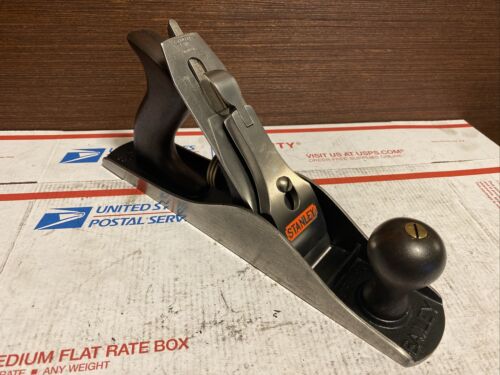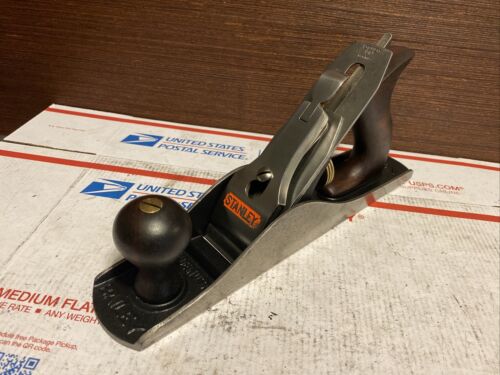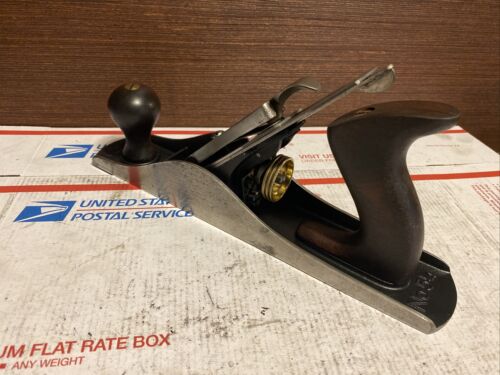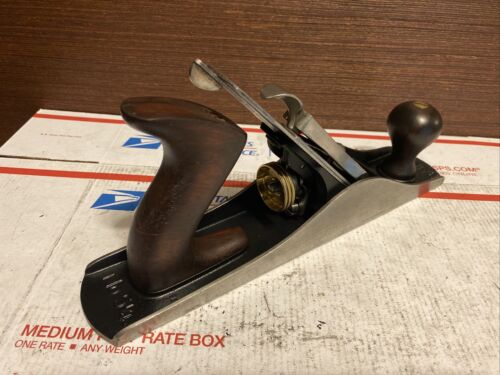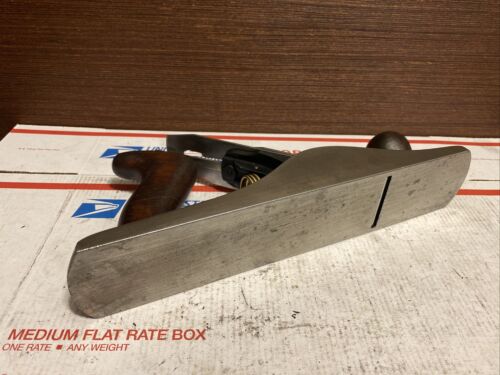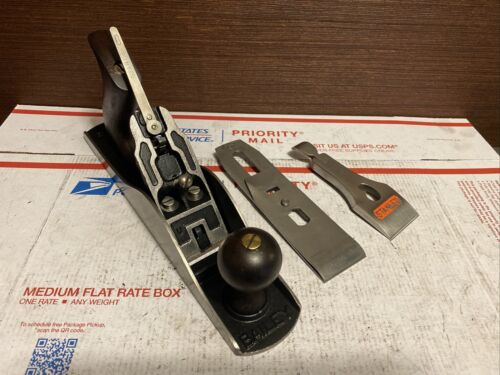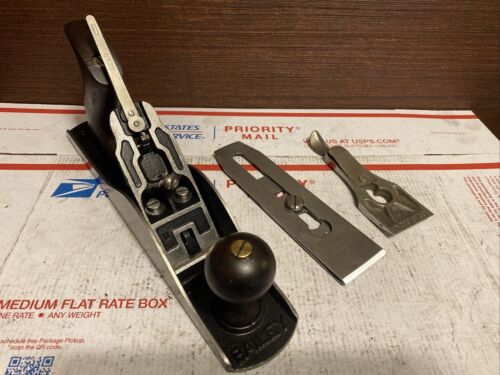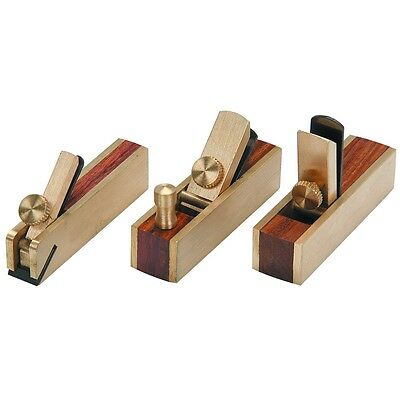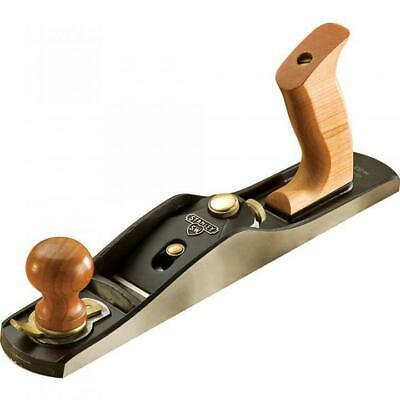-40%
Type 15 Stanley Bailey No 5 1/4 Hand Plane (1931-1932)
$ 52.77
- Description
- Size Guide
Description
I let the pictures speak to what you are bidding on so I don’t list specifics for each plane, but if you contact me I will answer any questions about any listing. I am usually able to do so in an hour or so.I offer the following so you can choose whether to bid on one of my listings . . .
Thanks for checking out my listings, including this one. I have restored nearly 70 planes of various date types, including Stanley (i.e., Bailey, Bedrock, Defiance, Four Square), Fulton, Craftsman, Keen Kutter, and Ohio Tool, ranging from No 3s to No 8s (or the equivalents). While I don’t accept returns, I stand by my work and every plane meticulous attention.
For those of you new to the hand plane buying experience, you should know that I have the equipment do restore planes properly. Specifically, I have a full shop that I use for restoring hand planes, to include a 44”x9” ½” plate glass lapping station (used to accurately flatten surfaces), disc and belt sander, lathe, drill press, painting station, bench grinder/wire wheel/buffer.
If you are buying and do not have the experience or tools to restore an old tool, I suggest that you should choose carefully -- ask questions and get an idea of what that seller does to prepare the plane. If they don’t have any explanation of their process -- and this is just my humble opinion -- I would be skeptical as to what you are buying. You may end up buying something that doesn’t work without significant disassembly and time consuming sanding and cleaning; in the end, it ends up being a total waste of money because it is only an expensive and old boat anchor.
To give you an idea of how I restore a plane, the following is my general process:
All plane components: completely disassembled and re-assembled, cleaned, oiled, buffed, and paste waxed, as appropriate.
Exterior plane surfaces: lapped to 150 grit sandpaper, machine buffed, and hand buffed with Johnson’s paste wax.
Interior plane surfaces: original finish stripped and painted with 3 coats of Krylon High Heat spray paint and 1 coat of Minwax satin spray lacquer to make it as close to original japanning as possible. If the original japanning (i.e., paint) is present, the listing will indicate. Otherwise, assume it was too far gone to be saved and has thus been stripped and repainted.
Handle (Tote) and Knob: original finish removed, sanded to 220 grit, either six coats of Minwax satin spray lacquer (satin finish reflects this finish applied) or two coats of shellac applied (gloss finish reflects this finish applied), and hand buffed with Johnson’s paste wax. For those handles with cracks or broken areas of the tote, Gorilla glue is applied and the tote is clamped to dry for 24 hours. This makes the handle actually stronger than the wood itself. In my experience, about half of the totes on eBay have cracks and if it’s not cracked yet, it probably will be soon so this is not a huge deal in my opinion so long as it is fixed correctly. If you search on all of the eBay listings, you will probably find that about half of the listings have handles that are either cracked or missing portions.
Frog contact points: cleaned for solid contact to plane sole; original machine marks are left intact.
Plane sole contact points: cleaned for solid contact to frog; original machine marks are left intact.
Chip breaker: both sides sanded to 220 grit, machine and hand buffed; underside edge lapped for solid contact to plane iron.
Cap lever: front sanded to 220 grit, machine and hand buffed; underside lapped for solid contact to chip breaker. For those cap levers that have the “Stanley” logo, I strip off the old paint if it exists and repaint it with Rustoleum orange paint.
All screw heads have been de-burred/sanded and screw slots filed for as “near new” finish as possible.
Plane iron is ground to 25 degrees on bench grinder at low speed to prevent losing steel temper, and ready for user sharpening. If a buyer has questions about sharpening, I can provide solutions that are either inexpensive or more involved, as it depends on how often the tool will be used to justify the investment in sharpening tools. Just my opinion, but if you cannot or are not willing to sharpen, then you probably should not invest in any planes from any seller as this is a constant, yet easy and quick skill that must be present or developed to use the plane efficiently. If you are buying on whether the iron is sharp on any given plane, you are going about it the wrong way, as that edge will quickly dull with regular use. This skill can be developed with some time and modest expense of stones, sandpaper, etc. and a honing guide at first to learn the angles that is inexpensive.
Should you have any questions or desire further photos, please contact me at your convenience. Best of luck to everyone!
